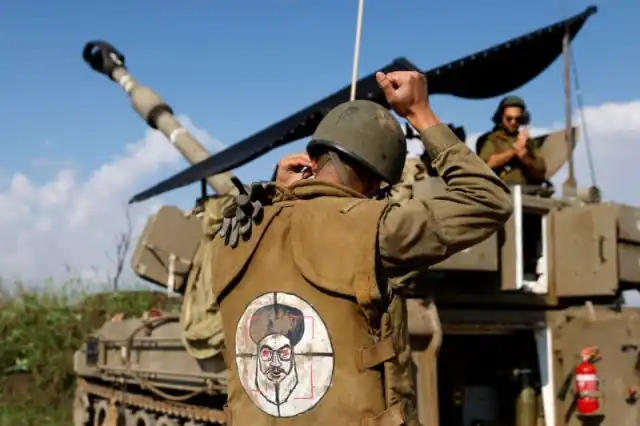Tel Aviv, Israel (AFP) – Amid intensifying cross-border skirmishes with Hezbollah fighters in Lebanon, Israel has sanctioned plans for a military offensive, according to a statement released by the Israeli Defense Forces (IDF).
The decision follows an escalating series of confrontations along the Israeli-Lebanese border, which have raised concerns of a broader regional conflict.
The approval for the offensive came after a “situation assessment” meeting attended by senior military officials, including Major General Ori Gordin, commander of the Northern Military Region, and Major General Oded Basyuk, head of Operations at the IDF General Staff.
In the statement, the IDF emphasized the necessity of defending Israeli citizens and countering Hezbollah’s growing aggression. The U.S. Pentagon quickly responded to the developments, expressing a cautious stance towards further escalation in the Middle East.
“We do not want to speculate or make assumptions about future events. It is clear that no one desires a broader regional war,” said Brigadier General Patrick Ryder, a spokesman for the U.S. military, during a press briefing reported by Reuters.
Tensions have been mounting over recent weeks, characterized by near-daily exchanges of fire between Israeli forces and Hezbollah, an Iran-backed militant group.
The situation reached a critical point after the assassination of a high-ranking Hezbollah commander, which prompted the launch of over 200 rockets from Lebanon into Israeli territory.
“Hezbollah’s escalating aggression is pushing us toward the brink of escalation – one with potentially devastating consequences for Lebanon and the entire region,” warned Rear Admiral Daniel Hagari, the IDF’s chief spokesman, in a video message posted on social media platform “X.” He emphasized Israel’s duty to protect its citizens and its readiness to take necessary military actions.
The heightened conflict has placed the international community on edge, with fears of a broader conflict spilling over into neighboring countries. Diplomatic efforts to de-escalate the situation are ongoing, but the volatility of the region’s political landscape poses significant challenges to peacekeeping initiatives.
Israel’s decision to launch an offensive is seen as a pivotal move in the ongoing conflict. Military analysts suggest that this could lead to an extensive and prolonged confrontation, with severe humanitarian consequences for both Israeli and Lebanese civilians.
The densely populated regions along the border are particularly vulnerable to the impacts of such military actions.
The cross-border clashes have already resulted in casualties on both sides, further inflaming public sentiments and increasing the pressure on political leaders to act decisively.
For Israel, the strategic aim is to diminish Hezbollah’s operational capabilities and to deter future attacks. However, the risk of drawing Iran deeper into the conflict remains a significant concern for global powers, particularly the United States.
As the situation unfolds, the international community is closely monitoring the developments, with calls for restraint and diplomatic resolution echoing from various world leaders and organizations.
The potential for a wider conflict underscores the fragile nature of peace in the Middle East, where historical grievances and geopolitical rivalries frequently lead to violent escalations.
The coming days will be crucial in determining whether the region can step back from the brink of a full-scale war or whether the cycle of violence will continue, with far-reaching implications for global stability.
This article was created using automation technology and was thoroughly edited and fact-checked by one of our editorial staff members

